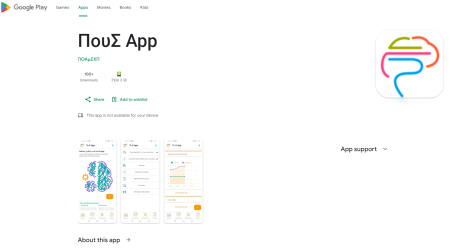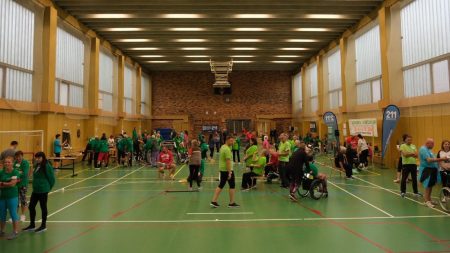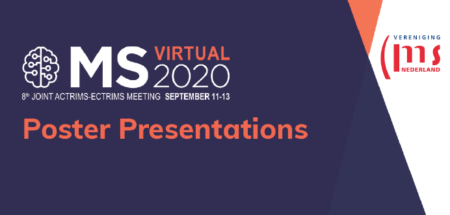
MS Society of the Netherlands presents national survey results at ECTRIMS 2020
30.10.2020Results of Dutch MS Patient Voice Survey 2019 presented at #MSVirtual2020
At the ACTRIMS-ECTRIMS Congress 2020 – also called as #MSVirtual2020 – our member organization from the Netherlands had the opportunity to present the results its national MS Patient Voice Survey between September 11-13, 2020 to the global MS community.
Between June and August 2019, 1029 people living with MS participated in this online survey. Both renown Dutch patient advocacy organizations, the MS Association Netherlands and the National MS Foundation collaborated to invite participants to fill in the survey, which consist of three sections:
- Characteristics of type of MS and activity
- Influence of the disease on daily life
- Information gathering and needs.
The 1029 participants were split by the following characteristics:
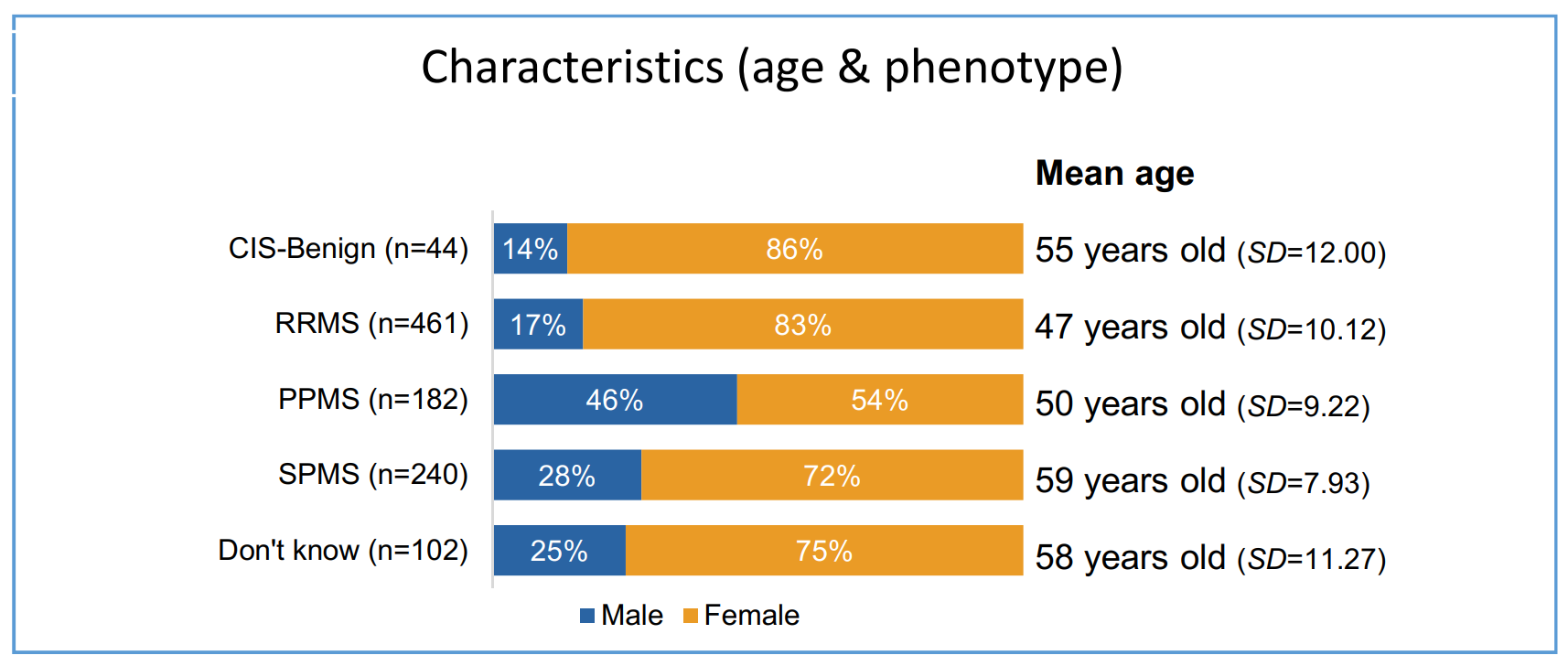
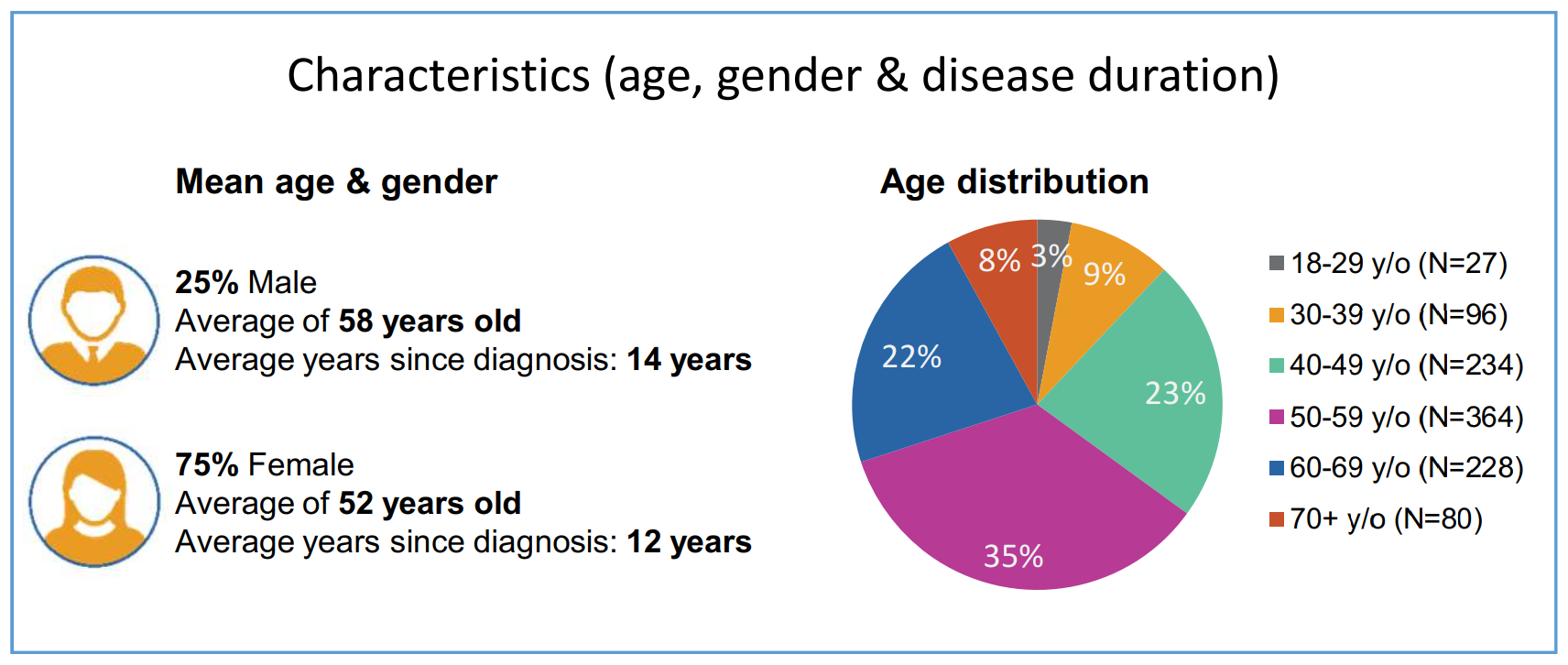
Characteristics of type of MS and activity
Patient-reported disease experiences are an indication of the perceived burden of the disease. A large proportion of participants were female (75%) and 10% of all participants could not report their type of MS. SPMS and PPMS patients reported the highest EDSS score and lower relapse recovery rates while they use less DMTs compared to the RRMS patients, potentially indicating a medical need for effective DMTs in progressive disease. This survey provides information on the relation between perceived disease status and other relevant factors.
Impact of disease on daily life
Another survey aimed at gathering insights on the symptom development, the impact of MS on activities of daily living (ADL) in relation to (co) mediation use and type of MS. The most frequently reported symptoms were; difficulties walking (85%), decline in overall condition (79%) and sensory problems (74%). The kind of symptoms and how they change over time differed between types of MS. The impact on ADL showed a decline in meeting family (27%), ability to perform household tasks (34%) and an increased in family dependence (41%) for SPMS patients. Most PPMS (64%) and SPMS (68%) patients did not use disease-modifying therapies (DMTs) but use more other types of medication. A higher EDSS score correlates with a higher number of doctor’s appointments.

There is a range of MS symptoms that affect ADL and social life. The burden of disease and progression of specific symptoms differ strongly per type of MS, with the PPMS and SPMS patients reporting a higher burden of disease and impact on ADL. The majority of the PPMS and SPMS patients do not use DMTs. Importantly, both PPMS and SPMS groups reported a decline in functionality and increase in symptomatic treatment, which highlights the burden of disease and a potential medical need in these patients.
The search for information
In the last survey presented, participants showed the highest interest in information about new treatments (75%), MS as a disease (64%), and lifestyle (51%). Topics of interest were influenced by age and did not vary by type of MS. Younger patient were most interested in MS and work, pregnancy and children while elderly patients have a high interest in how to stay mobile. 80% to 85% of the patients spend more than one hour a day online. There is a significant correlation between age and time spend online. Facebook is most frequent used (41%), mainly by younger patients. Snapchat is only use by 7% of the patients. Of the MS patients, 78% read daily newspapers and 39% read magazines (weekly or monthly).
Online information is an important source of information, especially Facebook. MS patient organizations, healthcare professionals and other stakeholders should keep in mind that some online information is not fact-checked and might misinform patients, which could influence their behavior. Most MS patients read local newspapers. Topics of interest depend mainly on age, suggesting that information should be tailored to patient age groups to fit their specific information needs.
 Your Account
Your Account